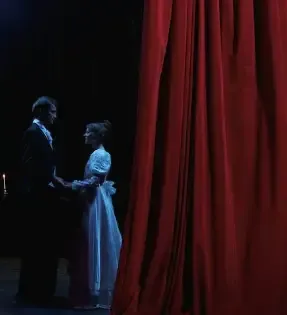Reviewing the movie Enola Holmes from a feminist perspective
Enola
Holmes on Netflix, written by Harry Bradbeer and published in 2020, was
undoubtedly a creative interpretation of the infamous Holmes family. The way
the youngest Holmes brother is highlighted in this particular movie, along with
the addition of humor and action, make it entertaining. It might be a good
idea to watch the movie that made everyone laugh again since Enola Holmes 2
will be released later this year.
Enola
Homes is much more than just another detective movie, even though this one seems pretty funny and chill, and Millie Bobby Brown, who plays
Enola, breaks the fourth wall by speaking straight to the audience. In fact, if
one looked closely, one could see the feminist beliefs that were interwoven
into the movie. Enola Holmes not only transports us to a time when women did
not have the same rights as men, such as the opportunity to vote.
While
the movie doesn't specifically address this because it focuses so much on
Enola, it does highlight the suffrage movement in the UK at this time. In
addition, there are several feminist interpretations of the movie that deserve
praise. As Foltz so eloquently puts it, this movie: is
an action-packed emotional adventure with a hint of feminism that is full of
emotion as it follows little Enola as she faces an unfamiliar world.
Enola As
a Young Feminist
It
is made clear right away in the movie that Enola Holmes is not your typical
little girl. No matter the period—the Victorian era or the twenty-first
century—a figure like Enola is difficult to find. She is not scared to break
the law, which is a major factor. Enola is a strong character because she is
willing to speak up for her brothers. One symbolic act she performs before
fleeing is leaving a caricature of Mycroft behind. This shows that she isn't
scared to go against the rigid guidelines that Mycroft stands for.
Enola
is another example of a persona that blurs the lines between genders. She might
not be as good at stitching as other young women of that era, but she is a
genius in the realms of science, literature, and martial arts—all skills that
are useful in a harsh society. Enola's cross-dressing is just another important
example of how she defies patriarchal social conventions. The voice of this
sixteen-year-old persona helps her stand out from the others without a doubt.
Enola is compared to Sherlock in terms of her ability to solve mysteries, and
Bradbeer even suggests that she might be able to outperform him.
What
Role Did Eudora Holmes Play in the Suffragette Movement?
The
movie makes several allusions that suggest Eudoria Holmes (Helena
Bonham-Carter), the matriarch of the Holmes family, is active in the suffrage
movement. For starters, she tells her small daughter that "the future is
up to us," which is "an apt metaphor for what the film could entail
for the legendary detective." In reality, it exemplifies how the
suffragette movement helped to advance numerous rights for women.
Sherlock
encounters Edith, a friend of Eudora while looking for his mother and sister.
They discuss how politics is important to their worldviews, and Edith even
exposes Sherlock's naiveté by saying that he had "no interest in changing
a world that suits" him so well. This stirring message expresses the
underlying idea or precept behind Eudoria's disappearance. All of these
emphasize the fact that she is depicted as a fictional figure who is integral
to the suffragette movement.
Viscount
Tewkesbury: A Male Transgressor of Gender
There
are numerous explanations for why Viscount Tewkesbury won over the audience
(Louis Partridge). He challenges the idea that men should be masculine, which
is a major factor. If Enola and Tewkesbury were closely examined, one might be
able to discern how Tewkesbury serves as Enola's antagonist. Enola isn't scared
to jump from the train, but Tewkesbury appears to be second-guessing himself.
While Tewkesbury is highly skilled at using the resources found in nature to
create a tasty dinner, Enola is unable to cook. Furthermore, Willen excellently
demonstrates how in one scene, when the camera solely focuses on the two
protagonists' seats:
"Tewkesbury
sits cross-legged next to Enola, who is seated with her legs uncrossed and
leaning forward with her forearms resting on her knees. Compared to Enola, his
posture seems more appropriate for a "decent" Victorian woman."
This
unnoticed element nicely encapsulates the movie's central concept of gender-bending.
The notion that gender is not binary and that it is socially constructed to
"manage" people is the focus of all of them. Enola Holmes met and
even exceeded the expectations of the audience. It's a fantastic movie that
makes you think deeply. As Wynne observes:
The
16-year-old aspiring detective is undoubtedly a feminist without even knowing
the term, and the core of the movie is feminism.

